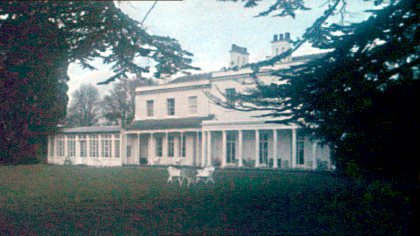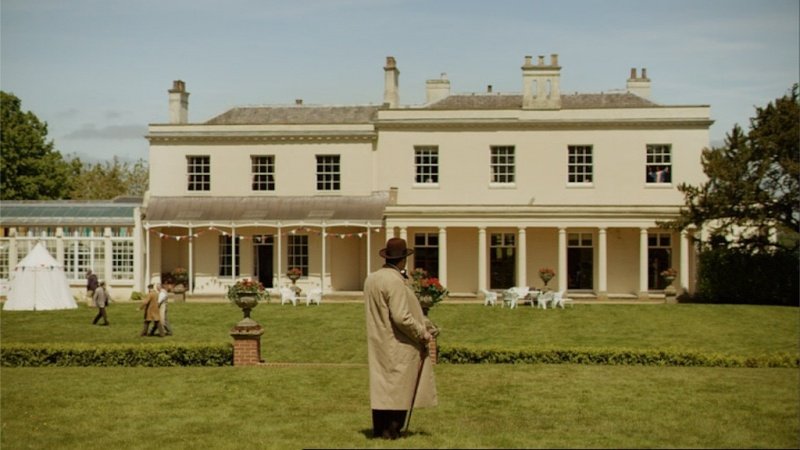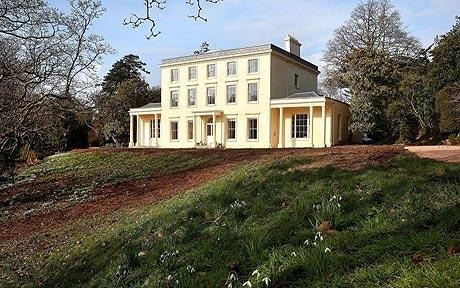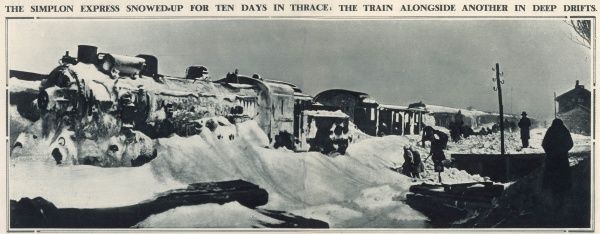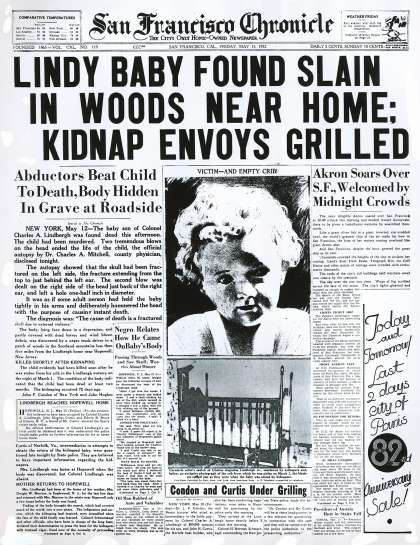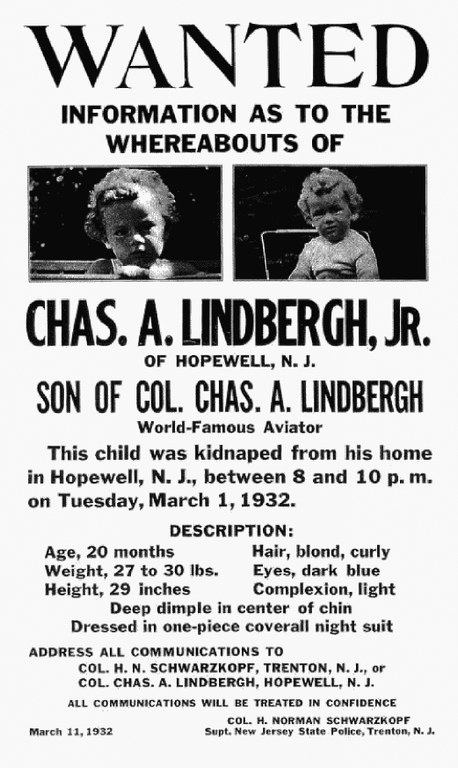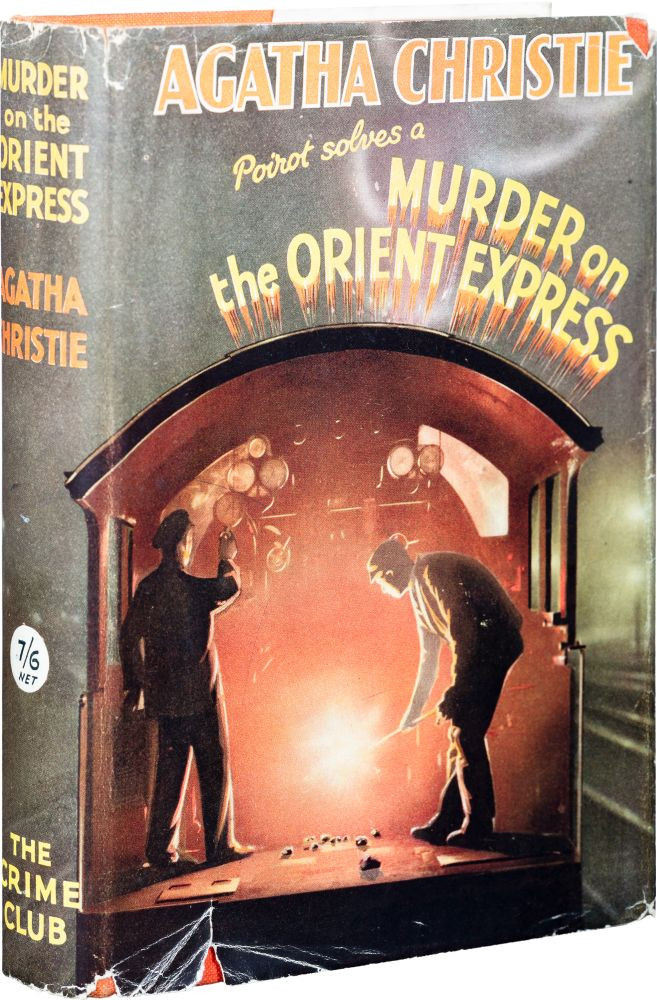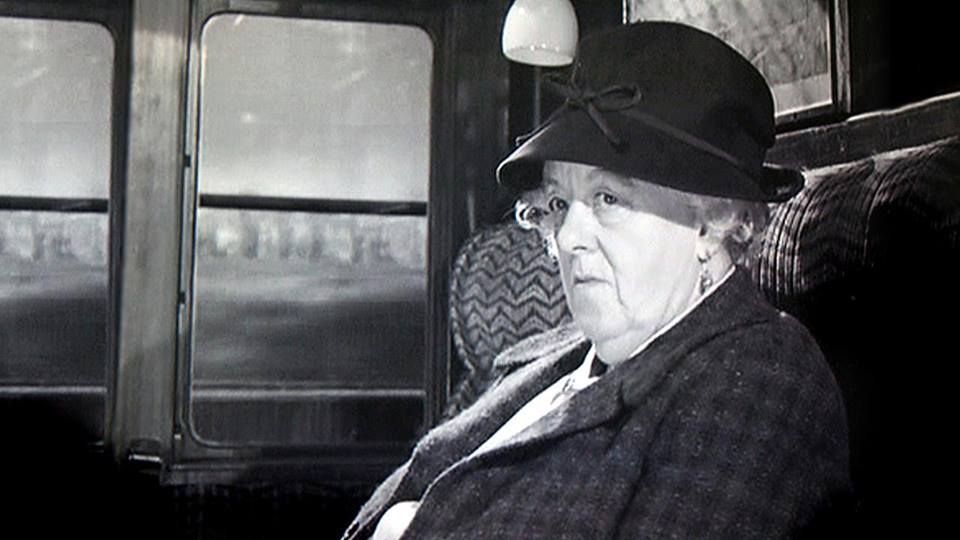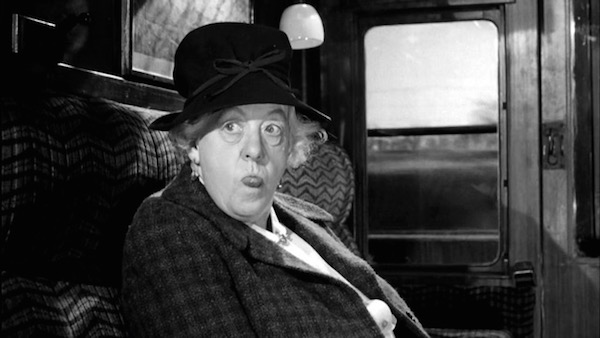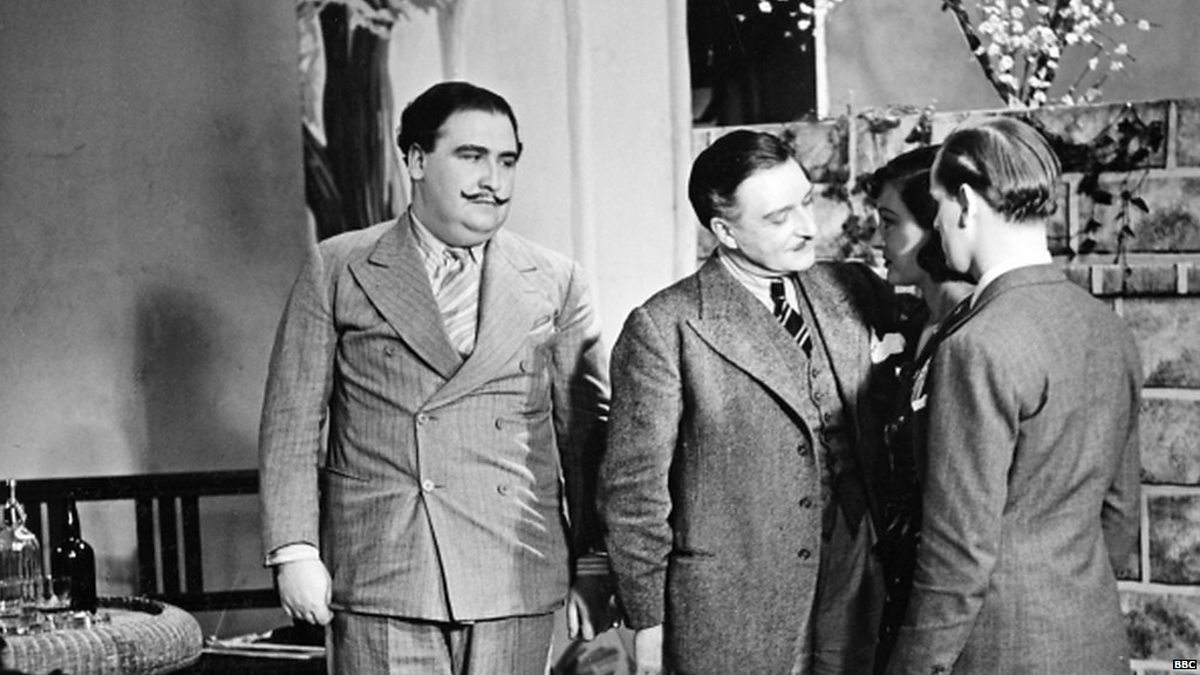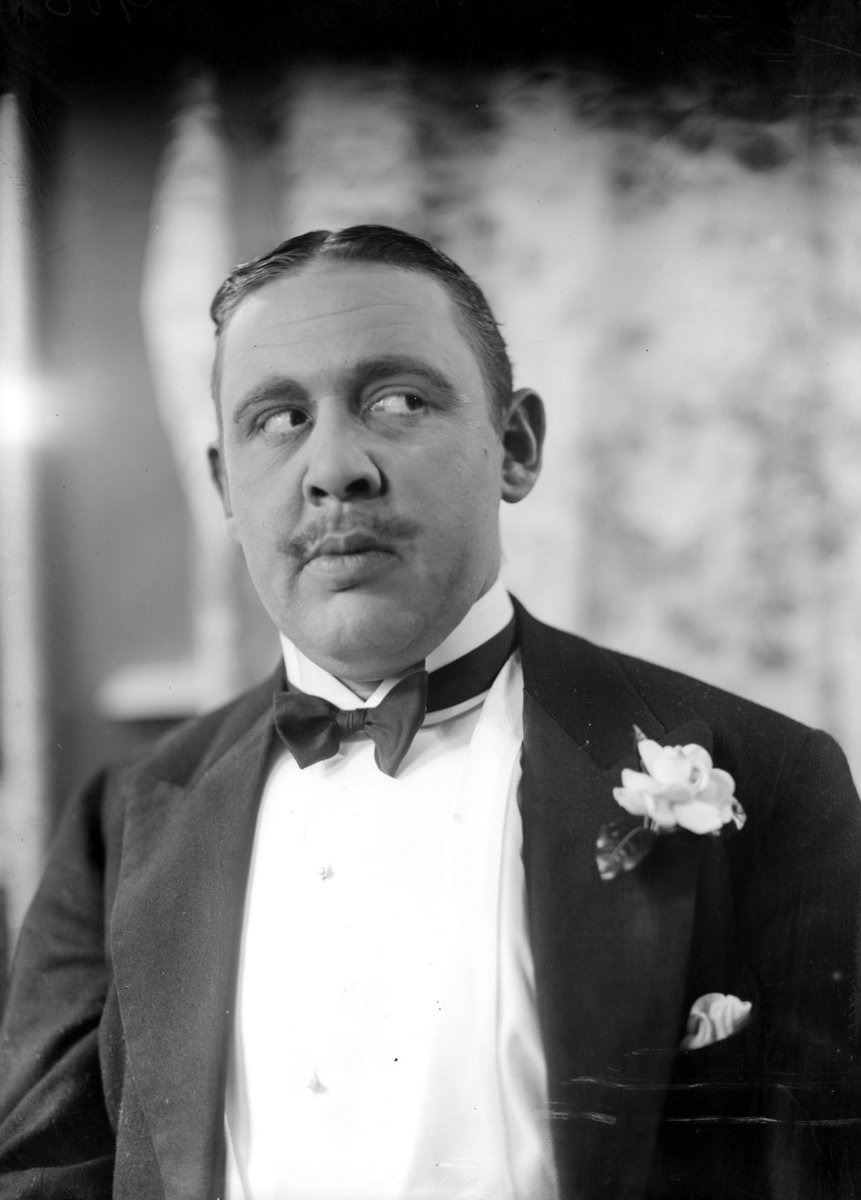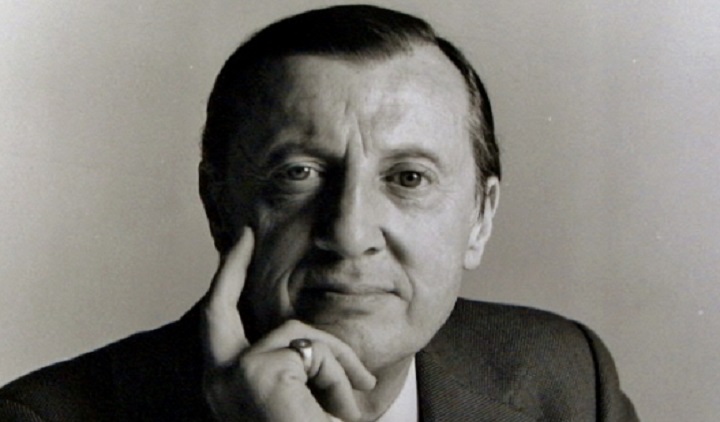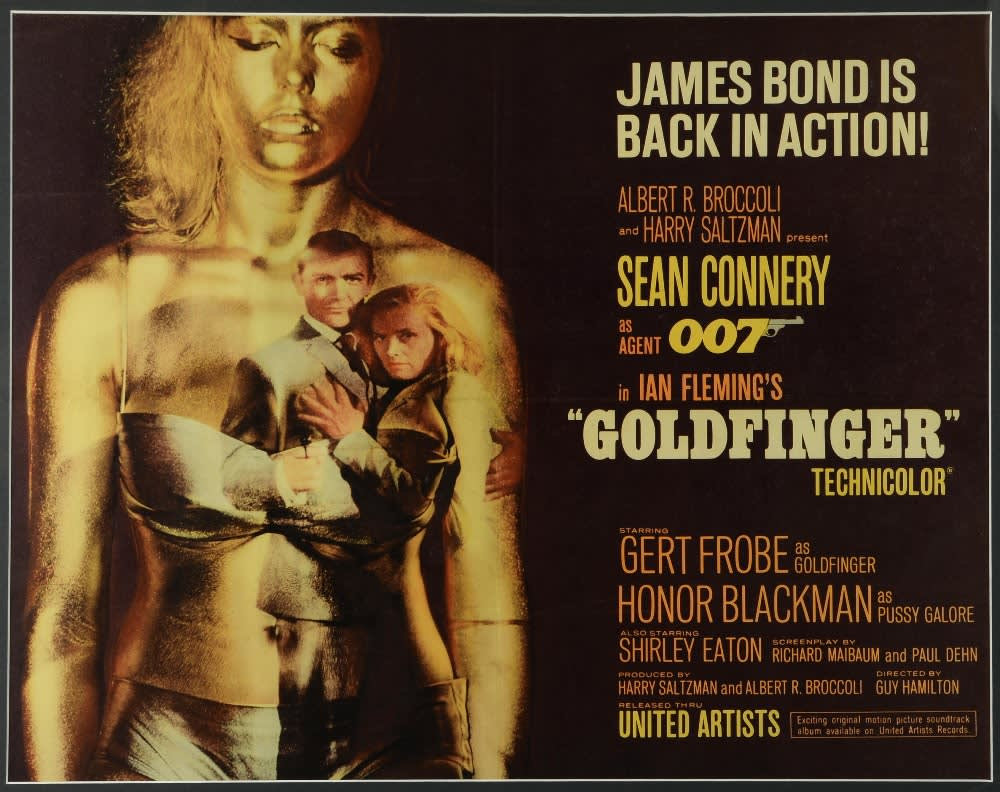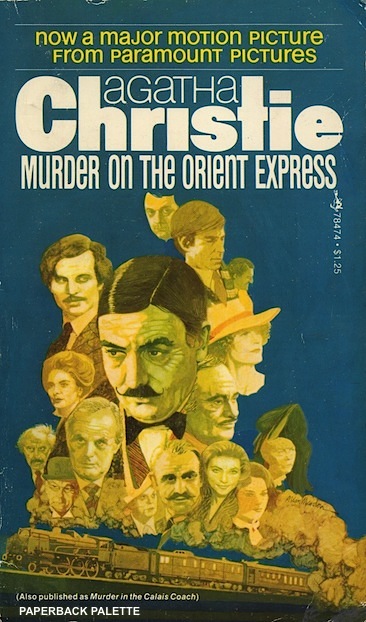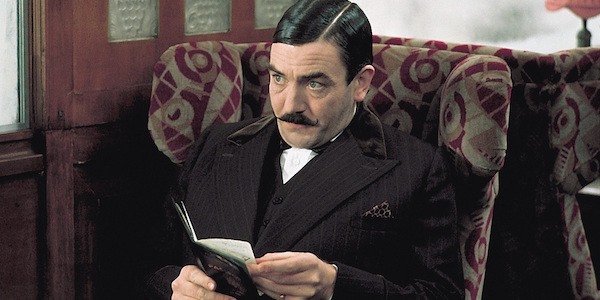So here we are, a Twitter thread all about Murder on the #OrientExpress! An #AgathaChristie adaptation that really set the template for how her work could be treated on screen – star-studded, high budget, and taken seriously.
(Not that all adaptations have done that since… but that’s a discussion for another day.)
During the film I’ll be tweeting about the original novel, the troubled story of Poirot on screen, and the making of the film itself. This is based on my research for my book all about Poirot (which is currently HALF PRICE at Amazon and Waterstones!) https://www.amazon.co.uk/Agatha-Christies-Poirot-Greatest-Detective/dp/0008296618
(Yes, I will be giving the book a plug occasionally. Who publishes a book while all the bookshops are closed and when the film it’s supposed to tie in with has been delayed for a year? Me! So it is hard to get publicity at the moment...) #OrientExpress
Fair warning - there will be a lot of tweets from this account in the next two hours (about 80). Much of it will be general (so you don’t *have* to be watching along), but some of it will be screen specific. There will be some pauses and some times when the tweets come quickly.
I’ll do my best to keep this as one thread, and will occasionally use the hashtag #OrientExpress to help to navigate people
Firstly a word about Richard Rodney Bennett’s (Oscar nominated, BAFTA winning) sumptuous score. Along with the beautiful title cards it really helps to set the scene – this is a prestigious production. Most previous Christie films had not been (more of which soon) #OrientExpress
Originally Bennett had been asked to create a 1930s style score to fit the period, but went for something more modern and interesting instead.
This opening section may be the best part of any #AgathaChristie film adaptation. It's terrifying and fascinating, and really grabs the audience. This trick of setting up a story that will become forgotten but then important later is reused in other adaptations #OrientExpress
A quick bit of trivia before I delve into the background – some of this early sequence was shot at High Canons, a house in Hertfordshire, which coincidentally was used as a location for the final David Suchet Poirot adaptation to be filmed (but not last shown), Dead Man’s Folly
(It doubled for Christie’s holiday home Greenway in some sequences. Greenway was the setting of the book and used for filming, but lacks a flat lawn needed for the fête. Few seem to notice that Greenway also has three storeys, but High Canons only has two!)
Right, so let’s discuss where Murder on the #OrientExpress came from. The basics – this 1974 film, directed by Sidney Lumet, is based on #AgathaChristie’s 1934 novel of the same name.
‘Trains have always been one of my favourite things,’ wrote Christie. ‘All my life I had wanted to go on the Orient Express. When I had travelled to France or Spain or Italy, the #OrientExpress had often been standing at Calais, and I had longed to climb up into it…’
She first made a journey on the train in 1928, on her way to Ur in Iraq. She later made another trip as part of her honeymoon – but this time the journey was not terribly romantic, as she was attacked by bed bugs. #OrientExpress
(I love how many clues are already setup here, and yet I don't think most viewers would recognise them as such! So clever.) #OrientExpress
In 1931 Christie was on another #OrientExpress journey when she wrote a letter to her (second) husband, archaeologist Max Mallowan, describing the people she had met on board, not always in a favourable way. This seems likely to have been one of the influences for the novel.
(The scenes of the #OrientExpress leaving Istanbul were filmed just outside Paris)
After she had written the book, Christie took another #OrientExpress journey to make sure that the mechanics of her plot really worked, checking things like the placement of switches. She knew people would check! ‘One man took the journey especially after he read it,’ she claimed
Someone's looking shifty... Well, quite a few people, including Poirot! Fun fact - I know someone who watched this and was quite sure he knew who did it. Surely it was that strange Belgian chap! #OrientExpress
In real life, the actual #OrientExpress had been stranded for several days in 1929 – such a setting for murder seems to have been irresistible...
Christie kept an #OrientExpress advertising pamphlet as a souvenir (which is still held in the family archive) - not sure about the menu!
Another key influence was the kidnapping and murder of aviator Charles Lindbergh’s child. The details of the case, and the strong public reaction to it, were only lightly reworked to become an important part of the backstory. #OrientExpress
(Forgive me for not replying to tweets, but do tweet away and I'll look forward to reading them later - I'm not able to multitask reading, replying and tweeting at once!)
And it’s not just the bare facts that found their way to the novel. In the Lindbergh case, a housemaid killed herself by drinking silver polish to avoid further heavy-handed questioning from the police, something that is only slightly reworked by Christie. #OrientExpress
These moving backgrounds were put together through a very complex system of projection. It cost a fortune as the sync had to be spot on, but was worth it as you can imagine the horror of green screen! (Back projection was also used, in part, for the Branagh version)
Back to the novel - Murder on the #OrientExpress was published in January 1934 in the UK, and a month later in the US under the title ‘Murder in the Calais Coach’, to differentiate it from Graham Greene’s novel ‘Orient Express’.
You can tell that Ratchett is a bad 'un cos he's a brash American, obviously. #OrientExpress
The 1930s were the peak productive period for #AgathaChristie, as she published two or more books every year (some were short story collections), most of which were met with critical acclaim. Murder on the #OrientExpress was no exception.
‘Mrs Christie makes an improbable tale very real, and keeps her readers enthralled and guessing to the end,’ said The Times Literary Supplement, for example.
The Guardian sounded a slight note of caution: ‘The “little grey cells” work admirably, and the secret is well kept... But at the end of it one feels that M. Poirot was just too easily omniscient.’
In later years Christie considered it to be one of the top ten books that she had written, and in a rare filmed interview she stated (after some hesitation – ‘oh dear, that’s a tall order!’) that it was probably the best Poirot novel. #OrientExpress
Despite the success, and the fact it slowly but surely gained the position of ‘classic’, there wasn’t a ‘proper’ adaptation of the book until this film in 1974. MGM offered $7,500 for the rights in 1936 but the deal fell through. #OrientExpress
Christie herself had long considered adapting it for the stage, which would have started with the kidnapping in New York and wouldn’t have been in the conventional whodunit mould, but never wrote a script.
The closest the story had come to the screen was in August 1955, when there was a live production of the story on West German television, with Heini Gobel playing Poirot. Unfortunately a recording doesn’t appear to survive. #OrientExpress
In the 1960s, Christie had a difficult relationship with MGM, which had the rights to adapt most of her stories, and was mainly using them for Margaret Rutherford Miss Marple films. They had already used two Poirot stories as the basis of these and wanted to do #OrientExpress too
‘No,’ said Christie, ‘I really can’t agree to the transfer of Murder on the Orient Express. MGM must do without it – they have plenty of other material. #OrientExpress took a lot of careful planning and technique.’
She went on to argue that to have it transferred to a ‘farce with Miss Marple projected into it and possibly acting as the engine driver – though great fun, no doubt, would be somewhat harmful to my reputation!’ #OrientExpress #AgathaChristie
The film didn’t happen and relations with MGM had collapsed by 1965.
So, how did we get from the idea of Margaret Rutherford in a farce, where her Miss Marple would replace Poirot, to the expensive and prestigious 1974 film? One important factor was Poirot himself, who it was generally felt had never been satisfactorily portrayed on screen.
(Anthony Perkins is really underrated here, he's great.)
The first screen Poirot was Austin Trevor, who performed in three films (Alibi, Black Coffee, Lord Edgware Dies) between 1931 and 1934. His Poirot was French, fairly young, moustache-less, and really not at all the detective we know. #OrientExpress
Francis L Sullivan, who frequently played Poirot on stage, appeared in two live performances of the one-act play The Wasp’s Nest on BBC Television in 1937, but the service was less than a year old so this made little impact.
By this point Christie’s agent was conceding that the big problem was finding the right actor. Charles Laughton had been a great success on stage, but for whatever reason was never seriously considered for a film.
In the 1960s there were a couple of new attempts to bring Poirot to the screen. Martin Gabel appeared in a TV pilot for a potential series, which adapted The Disappearance of Mr Davenheim, but it didn’t make it to series.
On the big screen attempts to adapt The ABC Murders were met with disaster when Zero Mostel penned a script that turned it into a sex comedy (yes, really). Christie and her family were appalled, and not without reason.
(There is loads more information about Murder on the Orient Express and all of these other projects in – you guessed it! – my new book all about the history of Poirot, currently half price at Amazon and Waterstones, and filled with 400+ illustrations!) https://www.amazon.co.uk/Agatha-Christies-Poirot-Greatest-Detective/dp/0008296618
The ABC Murders project was extensively reworked, and the outcome was Tony Randall in The Alphabet Murders, a 1965 comedy/mystery that is less appalling than it could have been, and that’s just about the most positive thing I can say. (Oh and Randall is actually pretty decent.)
Christie felt that she was done with films now. Born in 1890, she was in her 70s and 80s during the discussions about MGM films and later projects, and she found it all too distressing. Her daughter and son-in-law, Rosalind and Anthony Hicks, mostly took over any discussions.
But really, the default was to say no to any proposed project, something that Christie had done for some time. When asked who she would like to see play Poirot, she answered that she’d prefer that nobody did. #OrientExpress
The origins of the 1974 Murder on the Orient Express film really lay with Nat Cohen of EMI Films, who suggested the project to film producer John Brabourne, aka The Right Honourable The Lord Brabourne (pictured).
Previous Brabourne projects were films of Romeo and Juliet and Tales of Beatrix Potter, which were seen as high quality productions by Christie and her family, and alongside with his aristocratic background helped to cement relations.
Mathew Prichard, Christie’s grandson, has told the story of how Brabourne broached the subject of a film of Murder on the Orient Express with Christie. ‘It sounds apocryphal but it’s not,’ he assured me. I will paraphrase here for Tweet-length reasons. #OrientExpress
Brabourne initially suggested the project to Christie’s agent who said, well maybe a film of some kind, but you can’t do Murder on the Orient Express first. You’ll never be entrusted with the best/most famous Poirot story for the first film. #OrientExpress
Brabourne was unhappy so a week or so later he telephoned Christie herself, while she was staying at her home in Wallingford. Christie had half been expecting this, having been warned by her agent
“Well why do you want to do Orient Express?” she asked. “Oh, your agent didn’t ask me that!” said Brabourne. “It’s because I like trains!”
Christie was amused by this and said, all right, we can have a conversation in person. “How about now?” asked Brabourne. “I’m in the telephone box at the bottom of your garden!”
(If you’re not a Lord I think you get arrested for that sort of thing.)
(If you’re not a Lord I think you get arrested for that sort of thing.)
Slowly but surely a deal was formed, at least in part because it was felt that it would be a good idea to try and expunge the memory of the MGM films that Christie had so disliked.
Sidney Lumet, perhaps best known for 12 Angry Men at this point, signed up as director against the advice of his agent, who didn’t think it would be a project that Lumet should associate himself with.
Meanwhile Paul Dehn wrote the script, which met with the rapid approval of Christie’s family as it kept so closely to the original story. Dehn had previously scripted Goldfinger for the screen, and sadly died in 1976
A word about the story seems sensible during this scene – Murder on the Orient Express is *very* episodic, with characters having independent sections of the story, and a so its structure is quite unusual as it doesn’t progress the story in a standard way #OrientExpress
This makes it quite talky, and means that it doesn’t have the same sense of obvious progression that most Christie mysteries have
Of course, this is great for actors who want some uninterrupted screen time! Especially for Ingrid Bergman, whose monologue earned her an Academy Award. (Bergman had first been offered the role of Princess Dragomiroff, but preferred Greta)
(Along with John Gielgud, she also won a BAFTA for her performance)
Christie's daughter Rosalind suggested, perhaps surprisingly, that Poirot didn’t need to be the focus of the film (perhaps because they were worried about his portrayal), and this set the scene for a cast of big names to play the suspects… #OrientExpress
But as for the casting of Poirot, there was surprisingly little fuss. The shortlist was Paul Scofield, Alec Guinness and Albert Finney. Although Finney’s age put him as third choice (he was only 37) the other two were unavailable or uninterested, and so he was cast.
Finney was appearing in a stage play at the time, so an ambulance would pick him up from his home, which meant that his make up could be started while he dozed on the way to set!
(Finney was nominated for both an Academy Award and a BAFTA, but didn’t win either.)
Christie was surprisingly nonchalant about the new Poirot. A short while before the film’s release she was asked what would happen if she didn’t like the actor cast in the role – ‘You argue, and I think the publisher* usually wins!’ she replied
[*she probably meant producer]
[*she probably meant producer]
Sean Connery and Anthony Perkins were secured early, and Connery’s name in particular was used in discussions with other big name actors to convince them to take part.
One dead end was Katharine Hepburn, who was offered the choice of Mrs Hubbard or Princess Dragomiroff, but she declined despite a personal letter from Lumet. #OrientExpress
(Finney can turn from sinister to funny very quickly!)
‘I am much interested to know that this film will at least contain a very distinguished cast,’ Christie wrote to her agent when she saw the final list of actors in early 1974. She had been kept in the loop, but didn't really enter into discussions about the film #OrientExpress
("It's a sound system..." yes, indeed!)
To talk about each cast member individually would take hours, I’m afraid, so forgive me for skipping over some very big names..! #OrientExpress
Murder on the Orient Express was afforded proper rehearsals and read throughs, which was not always standard practice for films at the time, and there were nerves from even the biggest names in the early days of production
Although a relatively happy production it took a while for the actors to get used to working with each other (even big names felt a little intimidated), and the lengthy nature of the scenes and dialogue meant it was hard work even for seasoned hands #OrientExpress
Also, apparently Vanessa Redgrave irritated many with her constant discussion of socialism and workers rights, which resulted in an argument about the length of the lunch break each day. This resulted in a dispute that Equity had to intervene in.
Most of the production took place in Elstree Studios, but the departure and delay of the train itself was filmed in France with some of the shots of the train on its journey filmed in ther Jura Mountains
The Orient Express coaches are reproductions, based on whatever still survived in museums at the time
The nature of the set made the recording of sound difficult, and so radio microphones were concealed around set, including as part of the table ornaments #OrientExpress
The denouement was hard work for all involved – a massive monologue for Finney to learn, and a lot of tedious sitting around for the rest of the cast. All of which needed multiple takes for new angles, of course! #OrientExpress
While in production the film was soon seen as a great hope of the British film industry, and high profile visitors to the set included Princes Charles, Andrew and Edward. Charles brought King Constantine of Greece along with him.
There were early signs that the film might be a success, and so other studios scrambled to make offers to Christie. Columbia Pictures asked to buy the rights to The Mystery of the Blue Train, for example (because trains are the big draw?!)
‘I hope I shall like it, but anyway I have certainly got to go and see it as soon as I have the opportunity even if my feelings should not be as favourable as I would like them to be,’ Christie wrote. ‘But after all, nothing could be worse than Metro-Goldwyn-Mayer, could it?’
Christie saw the film prior to its premiere in a private screening, and she did like it.
(Cyrillic alphabets are a favourite trick of Christie's! But how many tiny clues now seem SO obvious? Very clever indeed. #OrientExpress)
After she’d seen the film Christie's daughter Rosalind judged that ‘I think they really have made a good job of it,’ although she sounded one or two notes of caution – ‘Sean Connery as Arbuthnot was bad and I didn’t like the end but I hope it is a success.’
(Note how the flashbacks aren't *quite* as we first saw them)
Although merchandising of the Murder on the Orient Express film was generally prohibited by the contract with Christie there were quite a few new editions of the book to tie in with it, most of which seem pretty scary to be honest. #OrientExpress
Murder on the Orient Express received a royal premiere on 21 November 1974, which was also one of the last public appearances of Agatha Christie (who died in January 1976). She got out of her wheelchair to greet the Queen. #OrientExpress
The critical reaction was initially mixed. A very grumpy Russell Davies of The Observer said ‘it has to be said that [Christie] doesn’t transfer well to the screen. Some will say she doesn’t even transfer well to the imagination’. Did Christie run over his cat or something?
The Daily Mirror's reviewer was grumpy: ‘Anyone buying a ticket for this particular express should lay in a
store of chocs and settle back for a fairly uneventful trip. And as for the final revelations … yes, I DID feel as if I had been taken for a ride’
store of chocs and settle back for a fairly uneventful trip. And as for the final revelations … yes, I DID feel as if I had been taken for a ride’
For The Guardian: ‘It’s a stylish, confidently competent production the sum of whose parts don’t add up to a really satisfying whole’
You will not be amazed to hear that in later years these publications hailed it as a classic, which later Christie adaptations couldn’t hope to compete with. Memory cheats, eh?
David Robinson’s review was the most well thought out: ‘Lumet accepts [Christie] on her own terms, doesn’t question the unlikelihood, makes no attempt to apologise for Poirot’s expository denouement …
... No more nor less than the book itself, it is a perfectly pleasant entertainment, a couple of hours of nostalgic escape, if you’re prepared to go easily with it.’ #OrientExpress
(This section is where I think Bennett's score really works amazingly well - not that it isn't brilliant throughout. So easy to make this seen silly or even boring, but with the lighting it's full of atmosphere. Love it!) #OrientExpress
The film ended up being a great commercial success, and an extraordinary success in America, where it was the eleventh highest grossing film of the year. It received six Academy Award nominations, with one win (for Bergman)
And, of course, the film had a great afterlife, being continually spoofed and referenced. My favourite is when Liz Lemon works out that her friends are working together in an episode of 30 Rock, after watching the film.
Oh, and we are still (re)watching it 46 years later. A lot! It's a great novel and a great film. It still deserves a big round of applause to all involved, if you ask me.
But back in the 1970s, thoughts soon turned to a second adaptation. But that’s another story…!
Thank you for sticking with me, I hope that some of you enjoyed that! If this is your sort of thing, do think about picking up my new book about Poirot, currently at a bargain half price at Waterstones and Amazon  #OrientExpress https://www.amazon.co.uk/Agatha-Christies-Poirot-Greatest-Detective/dp/0008296618
#OrientExpress https://www.amazon.co.uk/Agatha-Christies-Poirot-Greatest-Detective/dp/0008296618
 #OrientExpress https://www.amazon.co.uk/Agatha-Christies-Poirot-Greatest-Detective/dp/0008296618
#OrientExpress https://www.amazon.co.uk/Agatha-Christies-Poirot-Greatest-Detective/dp/0008296618
And if you're staying for Death on the Nile and haven't been completely exhausted by my tweets then I did that one earlier in the year! But I'm off for a lie down. https://twitter.com/DrMarkAldridge/status/1249258775753736194?s=19

 Read on Twitter
Read on Twitter
